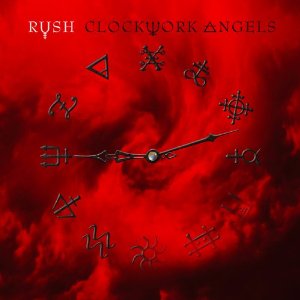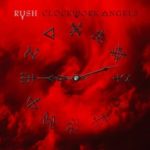
Anthem-Roadrunner
The great thing about Rush’s Presto was hearing the Canadian power trio leave the synthesizers that were the bane of many fans throughout the 80s (although the likes of Signals, Grace Under Pressure, Power Windows and Hold Your Fire have all aged quite well upon the advent of the synth-pop revival of this second decade of the new century) in favor of the guitar-based sound of their 70s heyday.
However, despite a few standout tracks on their 1989 comeback classic’s succession of 1990’s efforts like Roll The Bones, Counterparts and Test for Echo, the momentum provided by Presto failed to surpass the promise in those follow-up titles. Even through some die hard Rushies swear by them, the more discerning listener might render this Clinton-era trilogy a bit of a snooze, even though songs like “Dreamline” from Bones and Counterparts’ instrumental centerpiece “Leave That Thing Alone” are well worth your time (not so much for the trio’s cringe-worthy commentary on homosexuality “Nobody’s Hero”).
The 00’s fared better for Rush in terms of studio output, as albums like Vapor Trails and Snakes & Arrows saw the AOR edge of Rush’s pre-synth days creeping back into the fore big time. But nothing like the way they come at the listener on their 20th studio LP, Clockwork Angels, arguably Geddy Lee, Alex Lifeson and Neil Peart’s most visceral material since 1976’s 2112. Not to mention their most thematic on a conceptual level, as drummer and chief songwriter Neil Peart appears to have traded in his Ayn Rand fixation for a storyline seemingly inspired by the dark comic artistry of Alan Moore (and not a moment too soon for all of us progressive liberal Rush fans who have seen the Atlas Shrugged author’s good name sullied being name-dropped ad nauseum by GOP VP candidate Paul Ryan).
“In a young man’s quest to follow his dreams, he is caught between the grandiose forces of order and chaos,” explained renowned science fiction author Kevin J. Anderson, a personal friend of Peart’s who penned a novelization of Angels for ECW Press that recently hit bookstore shelves, to the trusted fansite Rushisaband.com. “He travels across a lavish and colorful world of steampunk and alchemy, with lost cities, pirates, anarchists, exotic carnivals and a rigid Watchmaker who imposes precision on every aspect of daily life.”
No doubt a Rush fanboy somewhere in this world has his nose firmly implanted within the pages of the Anderson book as you read this, picking apart the paragraphs of each chapter and seeing how they correlate to such tracks as “The Anarchist” and “The Wreckers” and deciphering the meanings behind the alchemical symbols on the clock and the time it displays—9:12 if you are curious. However, those Rushies who might not get as nebbish about the trio as some of the most dedicated Cygnus slaves out there but love them for the airtight AOR avengers they are without pretense will easily appreciate Lifeson’s fierce fretwork on Clockwork. Listening to standout cuts like album opener “Caravan” and the epic “Seven Cities of Gold”, it is so refreshing to hear him tear into his custom Les Paul with some of the hottest licks of his career. Meanwhile, the voice of Geddy Lee that Stephen Malkmus wondered about on Pavement’s 1997 college hit “Stereo” has never sounded better on quieter moments like “Halo Effectand “The Garden”, while his fingers are in top form from the thunderous virtuosity by which he attacks his bass on digital lead single “Headlong Flight” and “BU2B”, an instrumental jam every bit as mind-bending as “YYZ” and “Where’s My Thing?”
Despite its veneer as a concept record, Clockwork Angels is—at it’s root—a good old fashioned hard rock throwdown that catches fire in ways the last half-dozen Rush LPs never quite achieved. And that in and of itself was well worth the near 25-year wait.



No Comments comments associated with this post